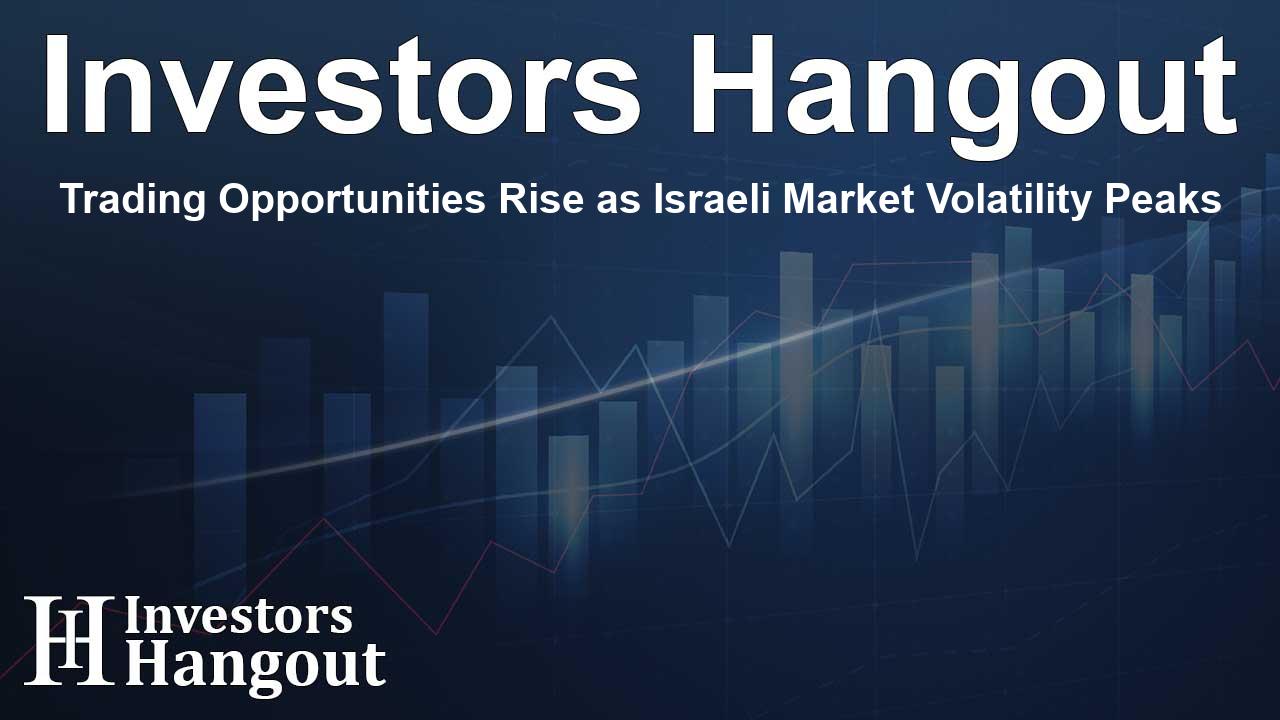Trading Opportunities Rise as Israeli Market Volatility Peaks

Trading Boom Amid Israeli Currency and Bond Volatility
In a landscape marked by uncertainty and conflict, leading investment banks are capitalizing on the tumultuous Israeli financial market. Recent data reveals that the world's premier banks are poised to achieve their highest revenue in half a decade from trading Israel's bonds and currency. The ongoing tensions in the Middle East have led to significant market fluctuations, providing unique trading opportunities.
Impressive Revenue Projections for 2024
Forecasts suggest that banks could accrue approximately $475 million in revenues from fixed-income, currencies, and commodities (FICC) linked to Israeli assets in 2024, reflecting a substantial increase of over 10% from the previous year. This uptick is driven largely by the heightened volatility seen particularly in the Israeli shekel, whose fluctuating rates have attracted the attention of numerous global trading firms.
Institutional Gains Amid Market Challenges
The substantial revenue surge indicates that global banks are profiting from the erratic pricing of Israeli assets amidst ongoing conflicts. Inflation in Israel has escalated, economic growth has slowed, and borrowing costs have risen, compounding challenges while simultaneously creating lucrative trading avenues. Among major players, JPMorgan Chase & Co. stands out as the leading beneficiary, with expectations of generating around $70 million in FICC revenue this year.
Overall Trading Landscape for Major Banks
While the forecasted revenue for trading linked to Israel marks a bright spot, overall growth in FICC income across the surveyed global banks is flattish this year. Despite the minimal overall increase, trading in Israeli markets has emerged as a crucial opportunity as many financial institutions navigate through more muted trading dynamics.
Competitive Positions Within the Market
Goldman Sachs and Citigroup have also positioned themselves strongly in the Israeli FICC space, holding the largest market shares after JPMorgan. Their strategic involvement further amplifies the competitive dynamics among financial institutions focused on Israeli bonds and currencies. In contrast, European banks have experienced contraction in their trading activities linked to Israeli entities due to mounting occupational pressures and stakeholder activism.
JPMorgan's Commitment to the Israeli Market
JPMorgan has reaffirmed its dedication to the Israeli market, having established a presence in Tel Aviv back in 2000. With a robust local workforce of approximately 200 employees, the bank is well-positioned to engage with the evolving economic landscape. In light of the ongoing challenges, they have adapted their strategies to play a pivotal role in navigating the complexities of the region.
Impact of Political Developments on Market Fluctuations
The volatility surrounding the Israeli shekel has surged due to a combination of political strife and the aftermath of several internal and external conflicts. Market analysts highlight that recent political decisions, particularly those related to judicial reforms, have further fueled investor anxiety, resulting in pronounced fluctuations in asset pricing. These conditions have not only influenced local investors but have also attracted speculative traders looking to benefit from the price swings.
Market Responses and Future Predictions
As a result of the continuing confrontations, the Israeli shekel has shown resilience, recently strengthening against the dollar, driven by hopes for potential diplomatic resolutions. However, experts note that while this volatility may favor speculative trading positions, it concurrently poses significant risks to businesses reliant on stable import and export arrangements.
Frequently Asked Questions
What is driving the revenue increase for banks trading Israeli assets?
The ongoing conflicts in the Middle East have led to significant market volatility, making trading Israeli currency and bonds a profitable venture for investment banks.
Which banks are the biggest players in the Israeli FICC market?
JPMorgan Chase, Goldman Sachs, and Citigroup are among the top players in trading linked to Israeli assets.
How has volatility affected trading strategies?
Increased volatility allows traders to capitalize on price changes, making it advantageous for traders betting on market directions.
What challenges do businesses face amid market fluctuations?
Businesses exposed to imported materials or finished goods suffer from inconsistent pricing and increased operational costs due to currency volatility.
How is JPMorgan involved with the Israeli market?
JPMorgan has shown commitment by maintaining a significant presence in Israel since opening its office in Tel Aviv, demonstrating its focus on this market amid ongoing changes.
About The Author
Contact Thomas Cooper privately here. Or send an email with ATTN: Thomas Cooper as the subject to contact@investorshangout.com.
About Investors Hangout
Investors Hangout is a leading online stock forum for financial discussion and learning, offering a wide range of free tools and resources. It draws in traders of all levels, who exchange market knowledge, investigate trading tactics, and keep an eye on industry developments in real time. Featuring financial articles, stock message boards, quotes, charts, company profiles, and live news updates. Through cooperative learning and a wealth of informational resources, it helps users from novices creating their first portfolios to experts honing their techniques. Join Investors Hangout today: https://investorshangout.com/
The content of this article is based on factual, publicly available information and does not represent legal, financial, or investment advice. Investors Hangout does not offer financial advice, and the author is not a licensed financial advisor. Consult a qualified advisor before making any financial or investment decisions based on this article. This article should not be considered advice to purchase, sell, or hold any securities or other investments. If any of the material provided here is inaccurate, please contact us for corrections.
